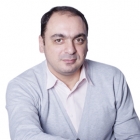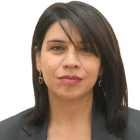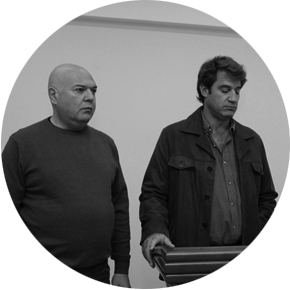Interview of the Director of the "Center for Humanitarian Demining and Expertise” SNCO Ruben Arakelyan to Mediamax
- The “Center for Humanitarian Demining and Expertise” SNCO was set up in 2011. What were the key objectives for the establishment of the Center and what has been done over the last 1,5 years?
- The Center was established in 2011 by the decision of the Armenian government. In fact, if a similar structure operated within the Ministry of Defense of Armenia before as a military subdivision, then by the decision of the government the new structure assumed responsibility for the implementation of demining policy in Armenia. Humanitarian demining is a broader notion than simply the demining which the army is doing. The range of humanitarian demining works includes a total and comprehensive clearance, teaching mine threats and risks as well as rehabilitation of mine victims.
Humanitarian demining is an expensive and hard process. The technical search devices, tools and equipment are very expensive. I have to note that these works are held with the assistance of PM/WRA (The Office of Weapons Removal and Abatement) of the US Department of State. I would also like to use the occasion and thank GICHD (The Geneva International Centre for Humanitarian Demining) that also supports us.
When the country is coming out of the state of war, it naturally faces a number of serious and urgent tasks, so it’s hard to deal with demining issues at once. This is why there is an established demining procedure in the world: such tasks are realized with the assistance of international donor organizations. The governments of various countries are trying to contribute to demining works worldwide, including Armenia. These organizations and the governments refrain from allocating funds to any military structure. So, the establishment of the Center was also conditioned by the fact that the donor aid to Armenia for demining became more available.

Ruben Arakelyan, Johannes Odendaal and Deputy Defence Minister of RA Ara Nazaryan
- Where concretely are demining works carried out?
- In Syunik, Vayots Dzor, Ararat, Gegharkunik and Tavush; in all the regions where hostilities were held.
- What has been done so far?
- In 2004-2005, “Ronco” company tried to carry out non-technical research to identify the level of danger. “Ronco” has worked only a year and submitted a report to the Armenian government which was not approved however. Until most recent it has been the only information about mine danger in the country. The data have not been updated since 2005. I have to note that some data presented by “Ronco” are vague and we cannot rely on them. Jointly with the FSD (Swiss Foundation for Mine Actions) we launched a new non-technical research.

Photo from R.Arakelyan's archive
The funding of the program began in September 2012, and teaching works kicked off. On October 2, the groups began working on the site. They started from Syunik, as this is the most “mined” territory. The non-technical inspection in Syunik, except for two highland villages where we haven’t been yet due to weather conditions, is completely over. Now we are working in Vayots Dzor and soon will start working in Tavush as well.
The non-technical inspection in Vayots Dzor is due to be over during 10 days, after which we will pass on to Ararat region. As for Tavush, we will work there for about 2 months.
- You’ve said that a non-technical inspection is currently underway. How many stages does the whole process embrace?
- Humanitarian demining works consist of 4 stages. The first one is the non-technical inspection. This stage envisages visits to all settlements that may have any relation to the contact line or hostilities. We talk to locals to understand where the mines are supposed to be planted and make some research, after which we outline the “suspicious territories”. We have no right to enter mine fields at this stage.
The second stage is the technical inspection. It aims to reduce “suspicious territories”. The rest of the land is given to local authorities. This is the most complicated and expensive process as it requires technical means.

Photo from R.Arakelyan's archive
The third stage envisages demining. This is the least expensive and relatively easy stage.
The last, forth stage is victim assistance.
Now we conduct the first stage of works. When we figure out the volume of works we will form national criteria and submit the draft program for the demining of these territories to the government.
The government has never said that it’s not its business and only the donors should care for it. The government contributes to our activities as much as it can. We must eventually realize that this is our home, and we will not wait for someone to come and clean it instead of us. In any case, we will clean our home. It will be good if they help us, if not, we will do our job and bring it to an end even if it takes more time.
- How long will the whole process take?
- I can’t predict how long the works will last until the first stage is over and we understand what tasks we face and what steps we should take to resolve them.
- Can you tell us about the financial aspect of demining?
- As I have already said, the first stage of the works is financed by the PM/WRA of the US Department of State. Negotiations on financing the second stage are currently underway. I can’t predict when the assistance will arrive or what amount it will be, but I am sure we will have it. We are closely and effectively working with the US Embassy in Yerevan.

Photo from R.Arakelyan's archive
- How much does demining cost?
- I can cite the data of “Ronco” dated back to 2005, in accord with which Armenia needs AMD 40mln or about $100 to demine its territory. Depending on national peculiarities, the fee can vary. The following rates are accepted in the world: EUR 5-6 per one square meter, and the demining costs- EUR 2-3.
- Do other international donor-organizations, besides FCD, plan to start working in Armenia?
- At this moment only FSD operates in Armenia. We are expecting cooperation with the British-American “The Halo Trust” in the nearest future. We also negotiate to attract the Norwegian People’s Aid (NPA).
- Does your authority extend only to the territory of Armenia or to NKR as well?
- Our works are carried out on the administrative territory of the Republic of Armenia. The donors will certainly not encourage us if we work on the liberated territories. But in any case it will be wrong to state that it’s out of our interests. The children living in a border village must know where the dangerous territories or mine fields are. In these cases we are trying to find a solution to eliminate the danger on the territories, which are in immediate vicinity of villages, by demining them or at least by shielding them.
- What difficulties do you come across during your work?
- The hardest thing is that there is no legislative base that would regulate our work, and many issues remain open: for example how to keep the signs and fences we have put, or how the territories that have already been cleared should be transferred to local authorities and how this land should be preserved in the future.
The second important problem is the people’s unawareness. Yerevan lacks awareness most of all. For some reason, the media bypass our activity; the private sector is doing nothing to solve these problems. Let's not speak about the fact that these lands are not used and the farmer cannot cultivate them. But don’t forget that every mine can kill innocent people.
*******************
Mediamax also talked to Johannes Odendaal, Project Manager of the Swiss Foundation for Mine Action (FSD) in Armenia
- When did you start working in Armenia and what are your main goals?
- I should say that FSD is a Swiss non-governmental organization based in Geneva currently operating in 7 countries, including Armenia.
We started working in your country in September 2012. Our main goal is to conduct a technical exploration to get a real picture about the situation with demining in Armenia. In October 2012, we conducted theoretical and practical trainings on non-technical inspection for 10 Armenian experts, after which we began the works on spot.
In various communities FSD also gathers information about the victims to submit it to the International Red Cross Committee (ICRC) for future activities.
- Who are your main partners in Armenia?
FSD is funded by PMWRA and therefore want to make use of this opportunity to thank them for their assistance to the Armenian people. We forward our progress of work to the US Embassy in Yerevan and to PMWRA in Washington on a monthly basis.
Since the very beginning of our activity we have closely collaborated with the Ministry of Defense of Armenia and the “Center for Humanitarian Demining and Expertise”. From time to time, FSD meets with Defense Ministry officials and we help them develop a demining strategy.
FSD is also in daily contact with the “Center for Humanitarian Demining and Expertise” and gets instructions from there. All the data are transferred to the Center every week, and the Center also informs local authorities about our activities.
- How long are you going to work in Armenia?
- We have almost completed the works in Syunik; one team is working in Vayots Dzor and the other began working in Tavush. FSD plans to complete the non-technical inspection by the end of April 2013.
FSD works with the government of Armenia and the CHDE in order to get in touch with various donor organizations to finance further stages of the works. However, irrespective of the availability of the donor aid, FSD hopes to continue rendering operational support to the Armenian government and the Center in their future activity in this direction after April 2013 depending on donor funding.
Ruben Arakelyan and Johannes Odendaal were interviewed by Aram Araratyan.




















Comments
Dear visitors, You can place your opinion on the material using your Facebook account. Please, be polite and follow our simple rules: you are not allowed to make off - topic comments, place advertisements, use abusive and filthy language. The editorial staff reserves the right to moderate and delete comments in case of breach of the rules.